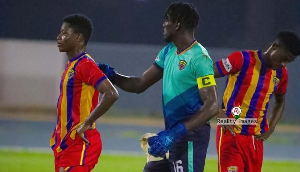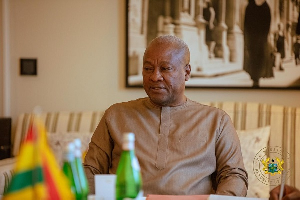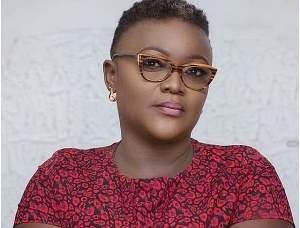Assistant Commissioner of Police (ACP) Alex Quainoo, the Brong-Ahafo Regional Deputy Commander, has said about 14 per cent of boys and girls in the country have experienced sexual abuse.
He said there was the need for Ghana Police Administration to increase interventions for safer learning environment to address sexual and other forms of violence in educational institutions.
ACP Quainoo said this at a day's workshop organised by United Nations Population Fund (UNFPA), in collaboration with Ghana Police Service and Domestic Violence and Victims Support Unit (DOVVSU) and UNHCR at Sunyani on Thursday.
It was an orientation on prevention and response to Sexual and Gender Based Violence (SGBV) for security personnel in the Region.
The participants included Police personnel, members of Neighbourhood Watchdog Committees at Fetentaa Refugee Camp and representatives of Ghana Refugee Board.
The Deputy Commander said some causes of domestic violence were traditional beliefs and practices which the government needed to address.
He cited a situation where a husband had the right by tradition to correct his wife or child by beating or starving the child.
ACP Quainoo noted that domestic violence had been recognised as being rooted in the subordinate role women had played and are still playing in the social set up and men sometimes suffered abuse by women but were not reported due to the stigma attached.
He stated that security personnel and DOVVSU were undertaking outreach and educational programmes in schools, churches and the media to enlighten the public especially women and create better understanding and awareness on domestic and gender based violence.
"The public are being educated about the law and assisted to understand that domestic violence is not acceptable and punishable by law," ACP Quainoo said.
ACP Quainoo said a memorandum of understanding was signed between DOVVSU and Girls Education Unit of Ghana Education Service to develop programmes to enhance the education and social capacity of girls in terms of addressing violence against children and women in the country.
He commended UNFPA for supporting efforts at building the capacity of police personnel to response to sexual and gender-based violence.
Ms Bridget Asiamah, National Programme Analyst of UNFPA, advised security personnel to develop appropriate response systems to sexual violence and understand the possible consequences of sexual violence.
She expressed concern about the issue of under reporting of SGBV and a challenge in preventing and responding to the issue.
"There is the need for all stakeholders in the protection of refugees and their host communities to be well sensitized to provide a response that is compassionate, comprehensive and effective."
General News of Saturday, 24 December 2011
Source: GNA
















